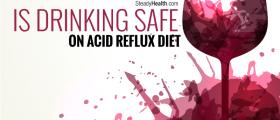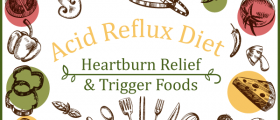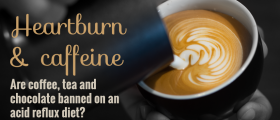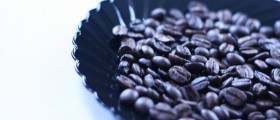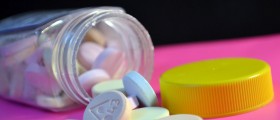After water, coffee and tea are the most popular beverages in the world. People who love coffee drink it at various times of the day, starting with breakfast, or even without taking any food in the morning. Many people are able to dash off to start their day after taking just a mug of coffee in the morning. Some people can take it more than twice or thrice a day without untoward effects. However, for some individuals, drinking coffee may have unpleasant effects, especially when taken on an empty stomach.

Effects of Coffee on Gastrointestinal Function
Coffee is popular for its effects on increasing mental alertness and enhancing clarity of thinking, especially among people who are tired or suffering from lack of sleep.
These include its antioxidant properties, which help prevent chronic diseases like cancer and diabetes, its protective effects against Parkinson's disease, its therapeutic effects against headaches, dizziness, and obesity, and many more.
There is wide belief that drinking caffeinated coffee can cause altered gastrointestinal function, resulting in dyspepsia, which manifests as indigestion, upper abdominal pain, stomach upset, heartburn, and other symptoms. Others believe that coffee drinking can lead to gallstone formation, delayed gastric emptying, gastroesophageal reflux, and development of gastric ulcers. While some people can take more than three to four cups of coffee per day, some cannot tolerate just one cup of this beverage without feeling symptoms of stomach upset.
Previous studies have suggested that the caffeine in coffee may cause gastroesophageal reflux in susceptible individuals, resulting in heartburn. A large study involving more than 8,000 healthy people in Japan recently demonstrated that there is no association between coffee drinking with gastric ulcer, reflux esophagitis, duodenal ulcer, and non-erosive reflux disease. However, another study showed that while coffee drinking does not increase gastro-esophageal reflux in healthy individuals, it may not have the same effect on those who are suffering from gastro-esophageal reflux disease (GERD).
GERD and Coffee
Gastroesophageal reflux disease or GERD is a common chronic condition where food or fluids from the stomach leak backwards to your esophagus, causing heartburn.
Experts therefore recommend avoiding coffee as well as alcohol, tobacco smoking, and other foods in patients who are suffering from this condition.
- WebMD. Coffee. http://www.webmd.com/vitamins-supplements/ingredientmono-980-COFFEE.aspx?activeIngredientId=980&activeIngredientName=COFFEE
- Cohen S. Pathogenesis of coffee-induced gastrointestinal symptoms. N Engl J Med. 1980, 303(3):122-4
- Shimamoto T, Yamamichi N, Kodashima S, et al. No association of coffee consumption with gastric ulcer, duodenal ulcer, reflux esophagitis, and non-erosive reflux disease: a cross-sectional study of 8,013 healthy subjects in Japan. PLoS One. 2013, 8(6):e65996
- Boekema PJ, Samsom M, van Berge Henegouwen GP, Smout AJ. Coffee and gastrointestinal function: facts and fiction. A review. Scand J Gastroenterol Suppl. 1999, 230:35-9.
- Photo courtesy of SteadyHealth




